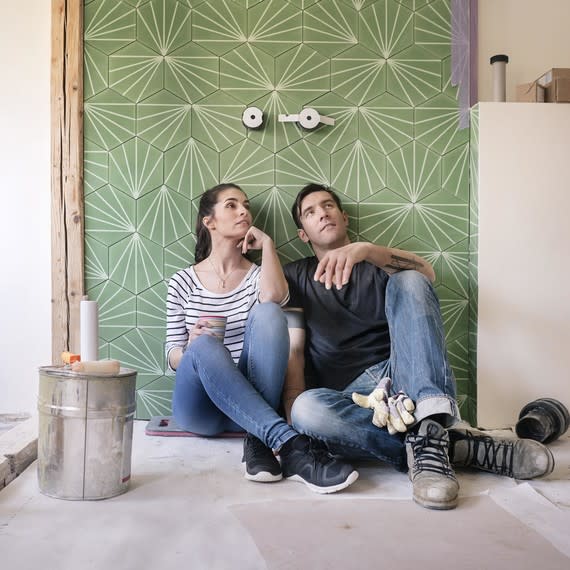Six Questions to Ask Yourself Before Buying a Fixer Upper

If you're a fan of home renovation television shows, you already know they make buying and restoring a fixer upper look so easy. All you have to do is find a home that's in bad shape or severely dated, bring in a squadron of service pros (plumbers, electricians, cabinet makers) who spend days and nights repairing this and installing that, call in an interior decorator, and voilà—you've got a lovely renovated, move-in ready home in just weeks. But the reality is much harsher. Contractors don't show up when they're supposed to, serious, expensive problems arise that weren't discovered in the home inspection, the cabinets you ordered a month ago arrived but in the wrong size—the list goes on and on. This isn't to say you shouldn't buy a home that needs work. The point is that you need to go in with both eyes open when you're searching for a house that's not sparkly and new. Here are six questions to ask yourself before purchasing a fixer upper.
Related: The Tile Trends to Know About Before Starting Your Renovation
Where is the home located?
Is the house in a desirable neighborhood with good schools? Is it near shops and restaurants? These things matter not only for your comfort and enjoyment, but also for resale purposes down the road. A home that requires work but is in a great location is often a worthwhile investment, especially if you couldn't afford to buy a turnkey property in the same area.
What shape is the house in?
"I always recommend that a buyer have a contractor and/or architect come through [a house under consideration] before they make an offer," says Natalie Hatvany Kitchen, a real estate broker-associate at Compass. "They should have a good sense of any red flags." Dale Contant, chairman of the board of the National Association of the Remodeling Industry, says that during an inspections, a contractor should look for how well the house is structurally built, how well it's been taken care of, and the house's basic mechanics like plumbing and electrical service. "Those will be some big costs if you have to redo them," says Contant, who is also the owner of Atlanta Design & Build.
Does the house meet your needs?
Don't fall in love with and commit to a house that has only one bathroom when you really want two. Don't convince yourself that you'll find the money (and additional space) to add a second bath later. If you can't do the renovation in the foreseeable future, continue looking at houses that are a better fit.
How long would a renovation realistically take?
Home reno shows on TV speed up the process to the point of being absurd. No, you can't renovate your kitchen, two bathrooms, the master suite, the basement, the laundry room, and the front porch, plus landscape your backyard in seven weeks! According to Contant, it takes a minimum of six to eight weeks just to remodel one bathroom. Ask your contractor for a realistic timetable and then decide if that's something you can live with.
Related: The Essentials for an Efficient Laundry Room
What will the final cost be?
The sale price may be affordable but will you be able to make all of the structural changes you want without going over budget? Do you have any financial flexibility—meaning, more money—to cover the costs of fixing a previously undetected problem, like a blocked sewer line? Is there anything leftover in the budget to decorate with? If the final cost will exceed what you can afford to spend on a home, this property probably isn't the one for you.
How much DIY would you be willing to take on, and how well-equipped are you to complete those jobs?
If you want to buy a fixer upper and plan do all the work yourself, which will save you a bundle, you may want to think carefully about your adeptness. "When it comes to electric, heating, plumbing, or moving walls, don't attempt it unless you have the skill set," advises Contant. Instead, hire a licensed pro who's been referred to you by someone you know and trust. What projects could a casual DIYer realistically take on? "Tiling a bathroom, installing a toilet, hanging kitchen cabinets, painting, and putting up a backsplash," says Contant.
